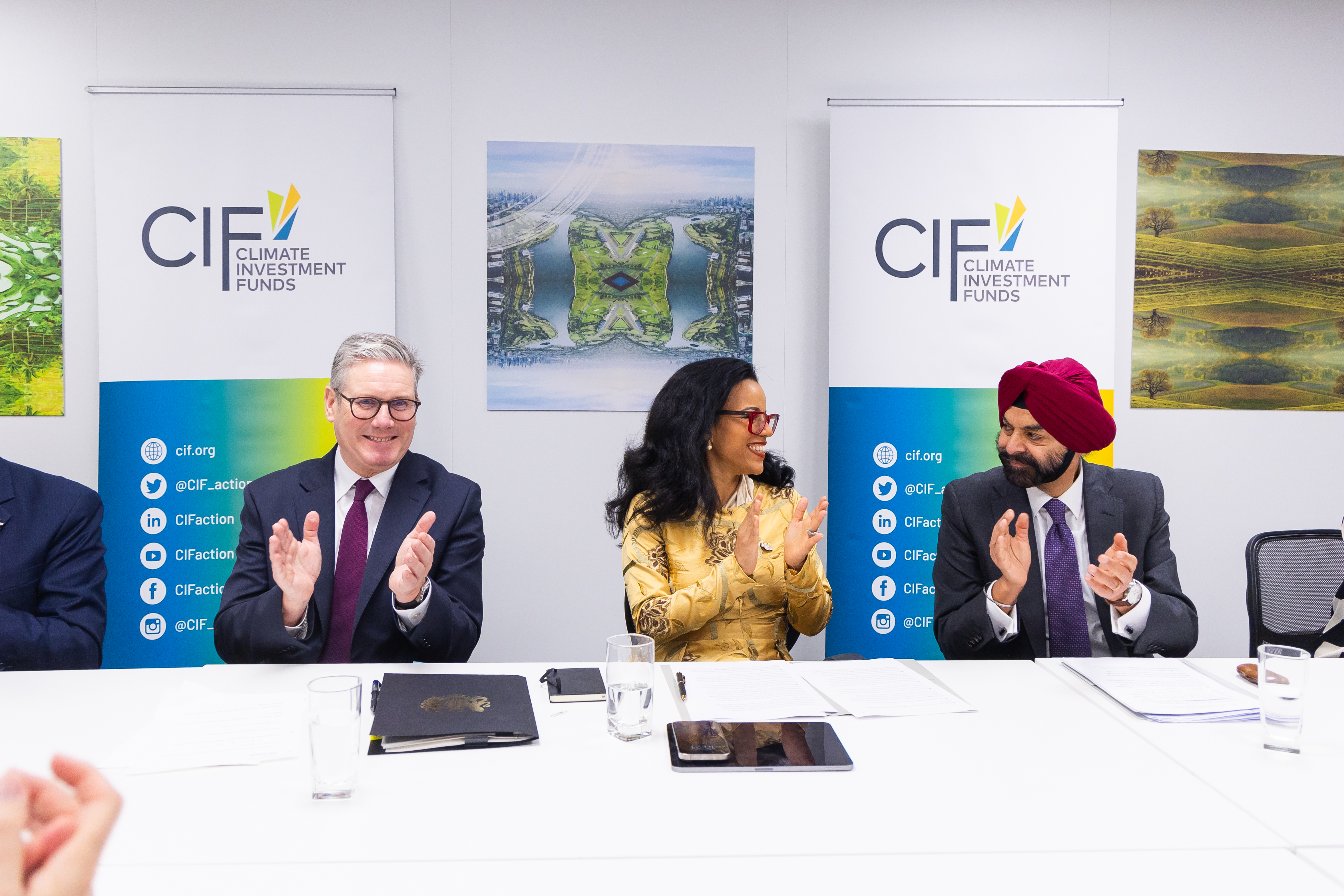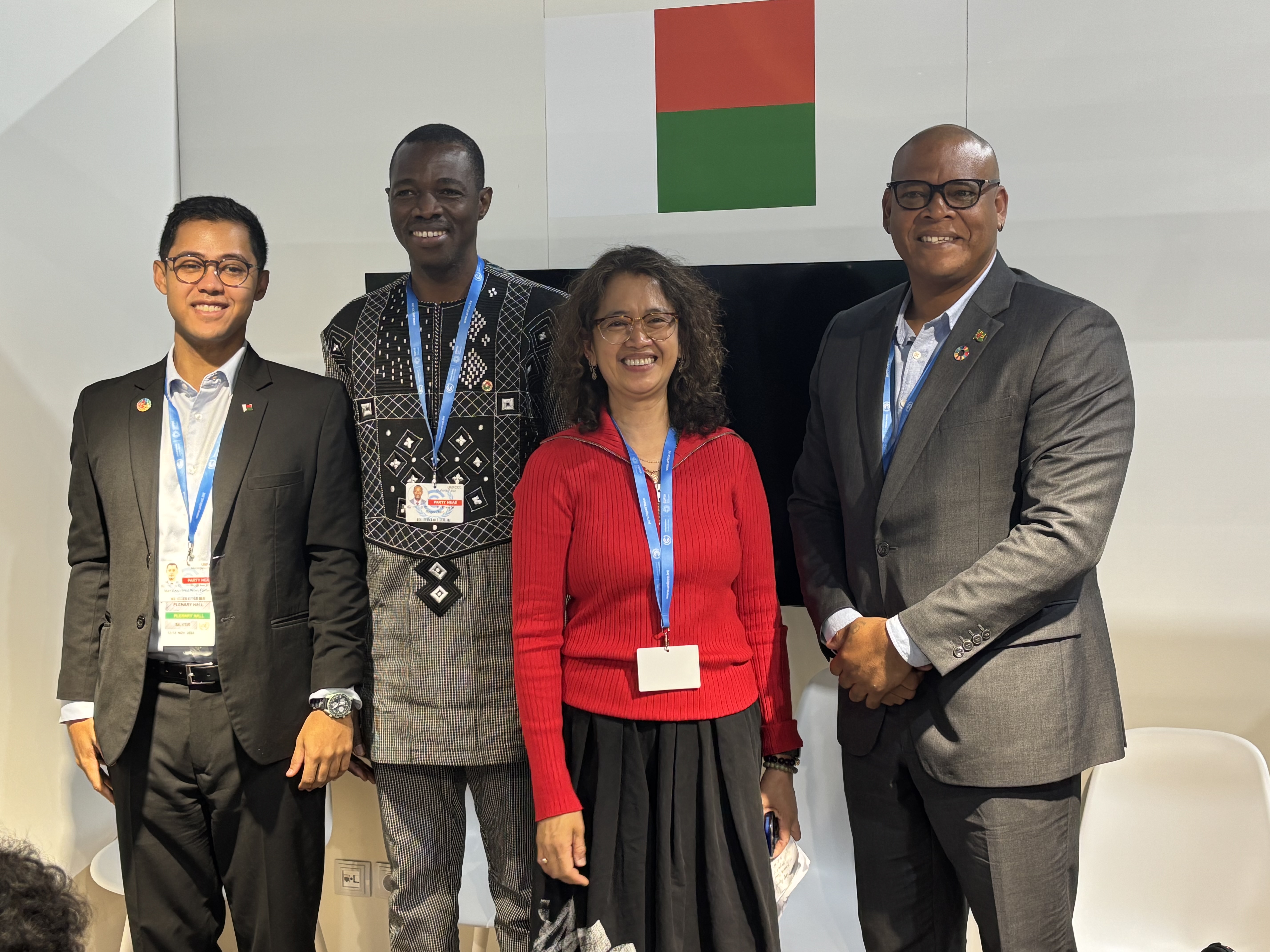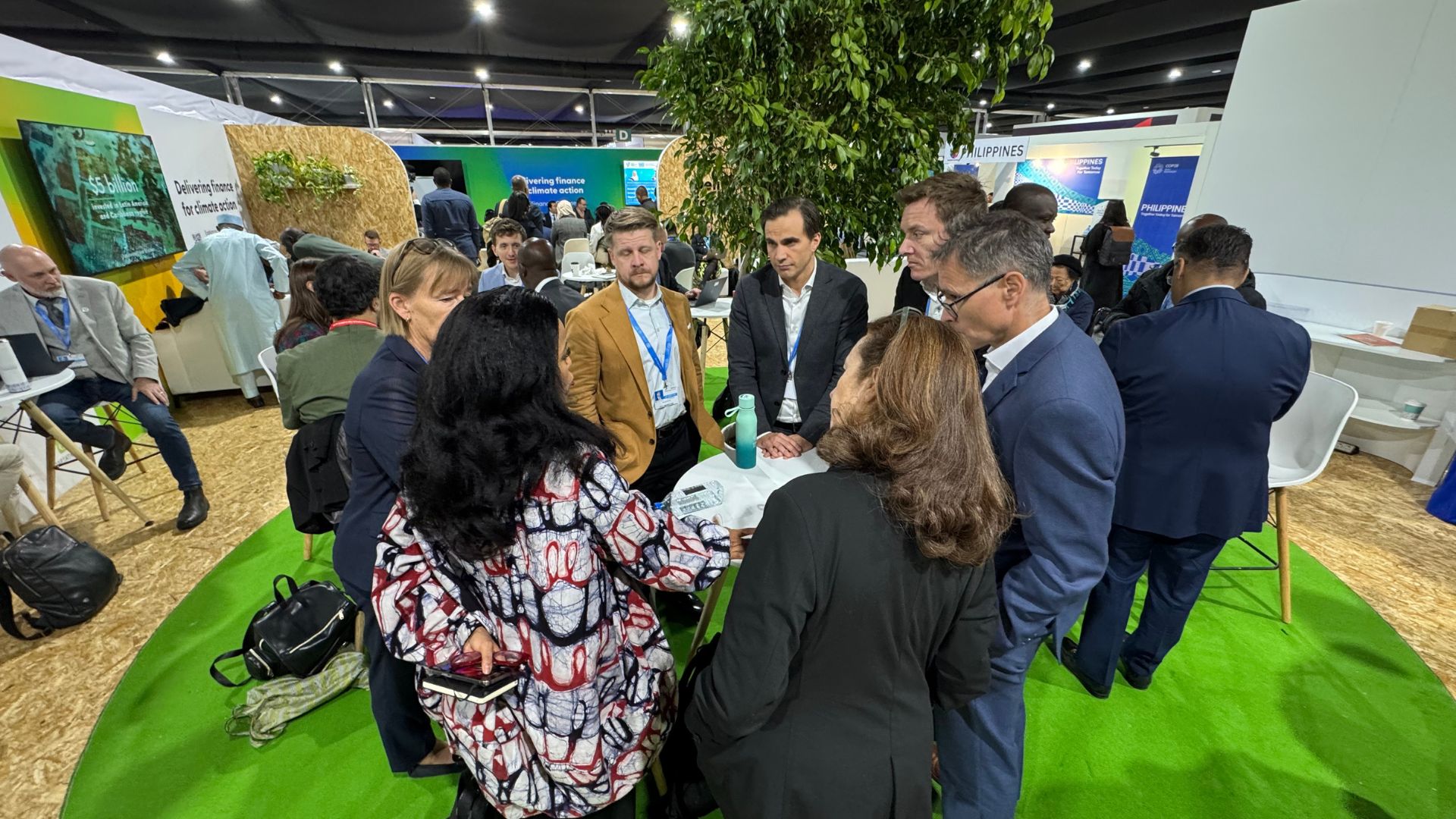With so much riding on the outcomes of COP29 in Baku, Azerbaijan, ministers from both developing and developed nations worked into the early hours of Sunday, November 24, to secure a deal on a new climate finance target. At the heart of the often-tense deliberations was raising the requisite climate finance needed to support country climate objectives. More than 30 hours past the original deadline, the new target, known as the New Collective Quantified Goal on Climate Finance (NCQG), was agreed: $300 billion annually by 2035.
Many argue that this figure falls short of the transformative sums required to help developing countries rapidly adopt clean technologies and adapt to intensifying climate impacts, making efforts to fill this finance gap more critical than ever. A new $120 billion joint finance target from ten major multilateral development banks (MDBs) was announced, while CIF’s engagements in Baku homed in on three pivotal issues:
- Unlocking innovative new sources of private finance to support wider climate investment,
- Mobilizing funding for industry decarbonization, and
- Stepping up adaptation and resilience finance.
Announcing a first-of-its-kind finance instrument
On the second day in Baku, CIF CEO Tariye Gbadegesin, United Kingdom (UK) Prime Minister Rt Hon Sir Keir Starmer and World Bank President Ajay Banga announced a bold step forward: the listing of the highly-anticipated CIF Capital Markets Mechanism (CCMM) on the London Stock Exchange.
Calling it a “milestone”, Prime Minister Starmer emphasized CCMM’s importance in addressing the climate finance gap: “Mobilizing private finance to go alongside public [funds] is at the heart of our shared challenge in the fight against climate change.”
President Banga praised the cross-sector collaborative efforts – including by our six AAA-rated multilateral development banks (MDB) partners and the countries supporting our Clean Technology Fund. These efforts helped make this a first-of-its-kind instrument for a multilateral climate fund. CCMM is expected to catalyze billions in climate capital over the next decade for high-impact clean energy and technology investments.

Accelerating industry decarbonization
Efforts to shift heavy industries to net-zero pathways were given a multi-million-dollar boost by two founding CIF country partners in the second week of COP29. The UK’s Secretary of State for Energy Security and Net Zero, Ed Miliband, and Germany’s Minister for Economic Affairs and Climate Action, Robert Habeck, have pledged a combined $420 million to accelerate decarbonization efforts in emerging markets and developing economies - $120 million of which will go to CIF’s Industry Decarbonization Program.
The CIF program will provide up to $1 Billion and allow up to 100 percent of financing to go to projects led by the private sector or that bring significant private sector co-investments. It also sees unprecedented levels of collaboration to decarbonize heavy-emitting sectors among countries and MDB partners. To support eligible developing countries to apply, we held a workshop in Baku for this exciting new financing window, open for expressions of interest until January 2025.
The CIF team supported the launch of the new Global Matchmaking Platform that links developing countries to critical sources of finance and assistance for industry decarbonization. We also joined a high-level session with UK Minister for Climate Kerry McCarthy and Brazil’s Secretary of Green Economy, Decarbonization and Bioindustry Rodrigo Rollemberg, among others, on “Shifting Gears: Accelerating Delivery Through Collaborative Action in Power, Industry, Transport, and Buildings” - hosted by the Breakthrough Agenda and the Industrial Transition Accelerator, as part of our efforts to amplify the needs of developing countries in their efforts to decarbonize heavy industries.
COP meetings usually attract young, passionate, climate activists from across the world and COP29 was no different. We used the opportunity to launch the 2025 CIF Youth Fellowship, which embeds young professionals within CIF-financed projects in their home countries. Applications are open until December 18, 2024.
Recognition for resilience and adaption
While reducing emissions is essential for meeting global climate goals, many countries at COP29 called for this to be matched by an immediate scale-up in funding for resilience and adaptation.
Three CIF partner countries – Madagascar, Dominica and Burkina Faso – joined our session on “Innovation in Climate Finance: Exploring Financing Instruments to Drive Climate Resilience in Developing Countries” to speak directly and compellingly about the increased adaptation and resilience-building measures they are undertaking.
“For Madagascar, climate change is not just a concept, it is a daily reality," said Madagascar’s Minister of Environment Max Fontaine, outlining the infrastructure destroyed and lives lost each year to climate impacts. “If we fail to meet this $24-billion target, the consequences would be unbearable."
He was joined by Burkina Faso’s Minister of Environment Roger Baro and Dominica’s Minister of Environment Cozier Frederick, who shared innovative practices for raising and deploying the needed finance, including the CIF’s Pilot Program for Climate Resilience.

Multilateral development banks join forces
A clear thread running throughout COP29 was the importance of working together as one system to make every climate dollar count. This was most evident in an announcement from ten major MDB’s of a collective climate finance target of $120 billion by 2030. The group includes African Development Bank Group (AfDB), the Asian Development Bank (ADB), the Asian Infrastructure Investment Bank (AIIB), the Council of Europe Development Bank (CEB), the European Bank for Reconstruction and Development (EBRD), the European Investment Bank (EIB), the Inter-American Development Bank (IDB), the Islamic Development Bank (IsDB), the New Development Bank (NDB), and the World Bank Group (WBG).
The CIF has a 16-year history of partnering with six of these institutions, and at COP29 we took the opportunity to map out more interconnected ways of working, building on our role in bringing developing nations and multilateral banks together to pioneer country-led solutions.

The need for greater climate finance is clear. Between the headline events and over fifty public engagements, Baku proved a crucial chance for us to connect with both our existing and potential partners to collectively push for innovative new ways to raise and deploy funding, at scale, ahead of COP30 in Belém, Brazil next year.




